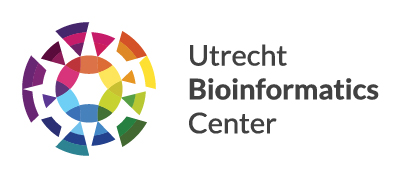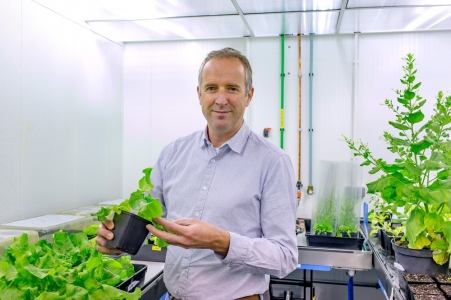The LettuceKnow project, led by Utrecht University Professor Guido van den Ackerveken, has attracted a 4 million euro Perspectief grant from the Netherlands Organisation for Scientific Research (NWO). Six major seed-breeding companies have topped up this sum with an additional 1.7 million euros to ensure the project’s viability.
Thanks to the work done in the past to map the genomes of such key food crops as corn and tomato, breeding new varieties of these crops has yielded significant results. “However, we have only made slow progress so far with lettuce, even though it is one of the main vegetable crops,” says Guido van den Ackerveken. “This fact is in spite of the Netherlands Centre for Genetic Resources owning more than 2,000 wild and cultivated lettuce varieties from the Mediterranean and South-West Asia.”
For a broader range of crops
To remedy this deficit, twelve research groups convened by Utrecht University, University Medical Center Utrecht, Wageningen University & Research and Leiden University will map a broad range of properties pertaining to 500 of these lettuce varieties in order to build a vast knowledge database for the benefit of research into the growth and resistance of leafy vegetables.
They will use technology to make exact measurements of external characteristics and investigate how the crops respond to a range of external stimuli, such as pathogens and saline stress, in order to map the activity of all 30,000 or so lettuce genes.
“This process will result in a great deal of important information about how lettuce grows and regulates its resistance,” Van den Ackerveken believes. “If we could harness this genetic information for data analysis purposes, we could identify the underlying hereditary properties. In the second part of the study, we will look at which of these properties we can use to breed new cultivated varieties of lettuce.”
Big data challenges
The bioinformatics in LettuceKnow poses a number of big data challenges. First, storing and aligning of the data from over 5000 RNA-sequencing samples against three different reference genomes. In addition, extracting genetic differences between 500 different lettuce lines and using GWAS to link the genetic differences to gene expression, and phenotypic variation is new to us.
This project also provides a unique opportunity for bioinformatics research to reveal novel biological knowledge from the rich data. Visualization and machine learning tools will be refined and developed to let us know how lettuce can be improved as a crop. The groups of dr. Basten Snoek, Prof. Berend Snel and dr. Jeroen de Ridder will be spearheading this part of LettuceKnow.

